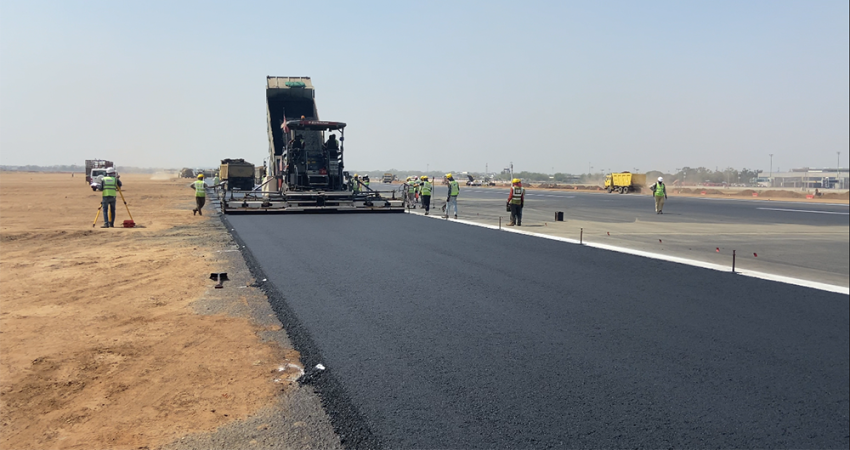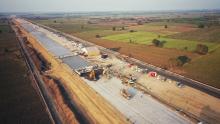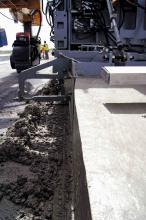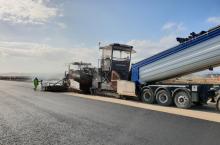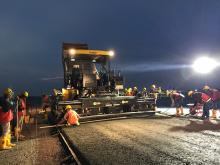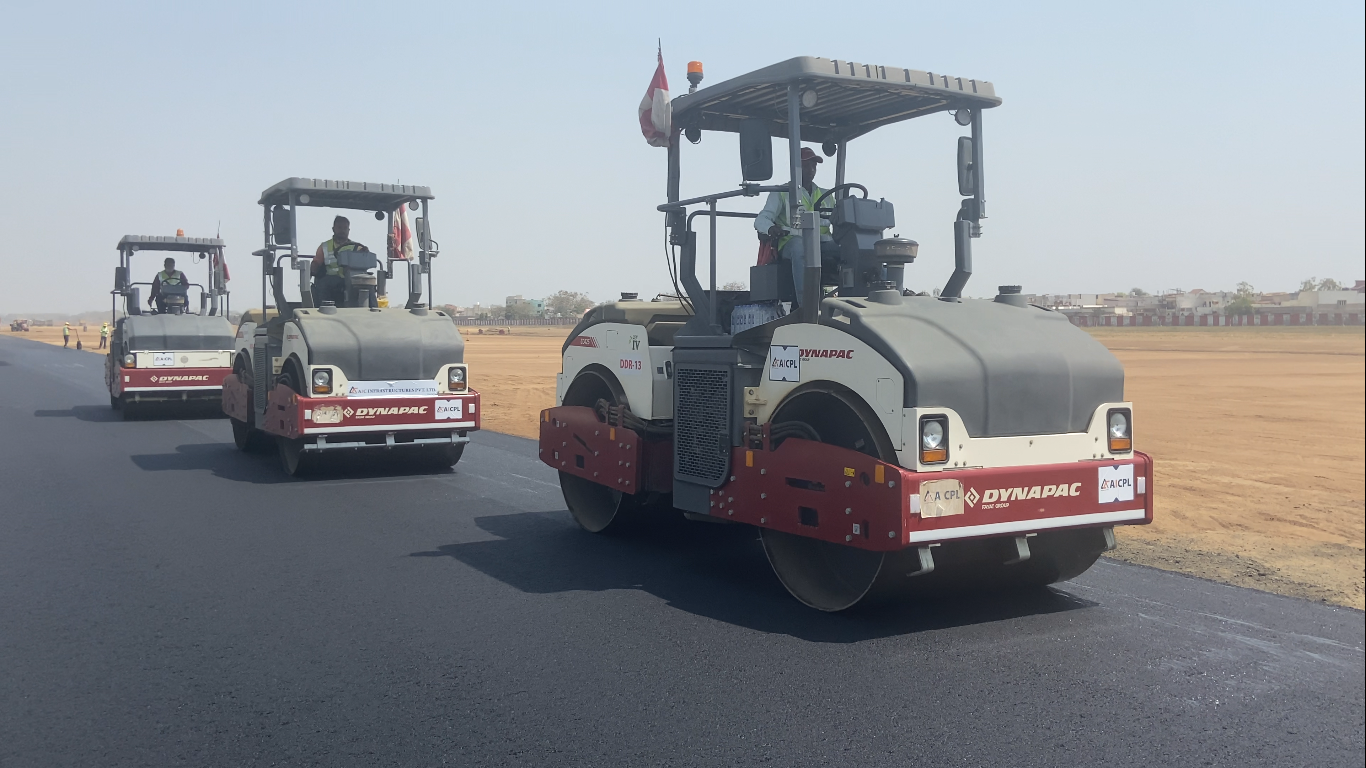
The Sardar Vallabhbhai Patel International Airport is the busiest airport in India’s Gujarat state. It serves the twin cities of Ahmedabad and Gandhinagar and is located in Hansol, 9km north of central Ahmedabad. It is named after Gujarati native Sardar Vallabhbhai Patel, the first deputy prime minister of India after independence from the British Raj in 1947.
The facility handled over 200 flights/day during the pre-COVID-19 period and as air traffic resumes, it is regaining its status as an important and bustling hub for both domestic and international flights. However, the high level of traffic as well as the local climate have made it necessary for upgrade work.
Due to the resurgence of travel in 2022, the challenge of resurfacing the runway had to be faced. But this work had to be carried out without impacting on flight operations. The improvements form part of a wider programme as India’s airports are now seeing rapid growth in passenger numbers and flights, which is being reflected in considerable investment in aviation infrastructure.
The airport features a single runway, 5/23, which is 3,489m long and 46m wide and surfaced with concrete and asphalt. The runway upgrade project has included the addition of a new overlay for the runway, strip grading and slope assessment and grading of the runway end safety area. It has also included the construction of new stormwater drains and the reinstallation of signs and markings.
A total of 300 construction equipment units were deployed for the project, including pavers, excavators, rollers, dumpers, bowers, mechanical sweepers, transit mixers and more. The runway project was completed with one million safe working hours and with the help of 600 personnel.
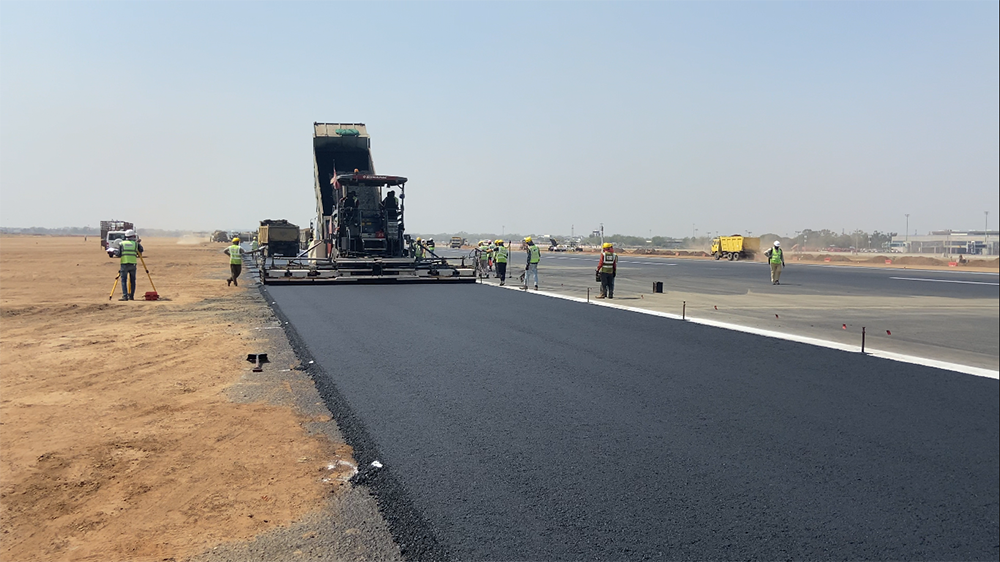
The runway resurfacing project was originally planned to be carried out in two phases, with the work taking 36 months to complete. However, the estimated time required was then revised at 90 days due to the use of modern equipment. And when the contracting team began working, progress was so good that the resurfacing was handled in just 75 days.
AICPL, a specialist in construction, repair and restoration of pavements with a particular emphasis on aviation infrastructure, played a key role in fulfilling the project. AICPL used only nine hours of Notice to Airmen daily - a NOTAM is filed with an aviation authority to alert aircraft pilots of potential hazards along a flight route or at a location that could affect the flight. During the 75 days of re-carpeting work, the team kept the runway open for 160 daily flights for almost 15 hours per day.
AICPL, along with Dynapac, was able to set a record. The resurfacing of the runway was completed in record time, an all-time best amongst brownfield runways in India. It is estimated that the amount of asphalt laid during the re-carpeting of the runway was equivalent to a 200km stretch of road, and the concrete used for the runway drainage system was enough to build a 40-story structure.
In order to complete the runway in record time, Dynapac’s full fleet of equipment was used. This included a CP275 PTR rubber-tyred compactor, CC425 tandem rollers and a SD2530CS paver. During the project, the company also achieved the milestone of laying 4,178tonnes of asphalt using Dynapac paving equipment in just nine hours.
The uni-directional cross fall of the runway was changed to a bi-directional slope. There’s now an 8km drain parallel to the runway on either side with 05 taxiways and 02 rapid exit taxiway stubs. The runway center-line lights offer a provision for touchdown zone lighting that illuminates Runway 23 for better visibility.
Kritarth Raja, chairman of AICPL, was impressed by the cooperation with Dynapac. Along with the new runway, there are many new additions such as an electric vehicle charging station, a new cargo terminal and a new airfield lighting system. Raja noted that the resurfacing work of a 3.5km stretch with a 45m width was completed in record time.

